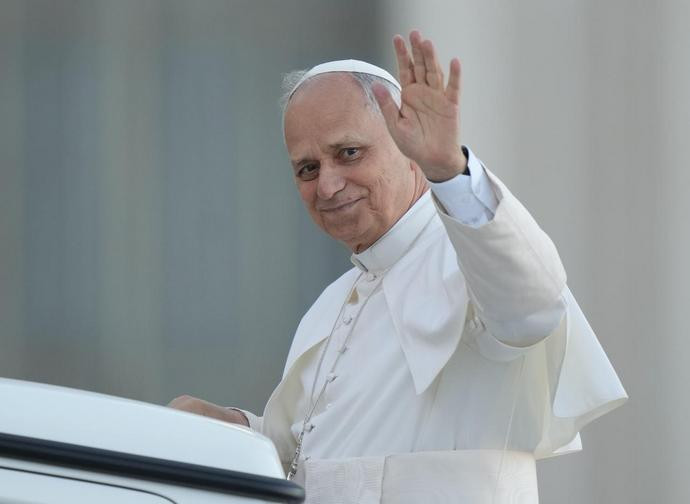Dilexi Te, Leo XIV publishes Francis's last document
The Apostolic Exhortation on love for the poor, bequeathed by his predecessor, has been presented. True to his style, Pope Pevost maintains the layout desired by Pope Bergoglio, adding only a few personal reflections. Controversy surrounds Monsignor Paglia's contribution.

'Dilexi te' was presented on 9 October at a press conference by Cardinals Konrad Krajewski and Michael Czerny. These two names were chosen deliberately, as we predicted three months ago, because the first document of Leo XIV's pontificate is dedicated to love for the poor. Initially, it was to be an encyclical; however, at the end of the summer, the decision was made to make it an apostolic exhortation instead.
The American pope signed it publicly on 4 October, the feast day of St Francis, thus restoring a tradition that had been interrupted by his predecessor, who used to sign documents privately.
As the Daily Compass explained last July, Prevost did not want the draft of a work commissioned by Francis to remain unpublished and chose to release it. Thus, Dilexi Te was born: formally the first document of the new pontificate, but substantially the last of the previous one. The apostolic exhortation contains many of the main themes of Bergoglian thought. The respectful and prudent approach of Leo XIV also emerges from this, as he could have chosen not to publish this document, or at least revise it in its entirety; instead, he chose to leave what his predecessor had approved, adding only a few personal reflections.
Not by chance, the text is marked by numerous quotations from Francis, just as the choice of 4 October is not by chance, as it pays homage to St Francis of Assisi (just as St Augustine is referenced). Returning to Bergoglio's themes, yes, there is room for the call to welcome migrants and for the popular movements so dear to the Latin American Pope, but which certainly do not warm the current Pontiff's heart in the same way. Yet he did not gloss over them, showing the kind of understandable reverence towards another pope that Francis — unfortunately — did not show towards Benedict XVI when he chose to abrogate Summorum Pontificum, even though his elderly predecessor was still alive.
Perhaps, after twelve years of a divisive pontificate, those who read Dilexi te might be disappointed by its familiar content. However, they would be mistaken because there is much to appreciate in the style and 'normality' of this Pope. Francis was also capable of this style and 'normality' in June 2013 when he promulgated the encyclical Lumen fidei, written by Benedict XVI. Something soon changed, but that is now a matter for historians.
In the new apostolic exhortation, we find the Pope's viewpoint on current events, particularly the new forms of poverty that are affecting even once-opulent Europe. The critique of materialism reflects the Bergoglian approach also evident in the rebukes to Christians who, on many occasions, allow themselves to be influenced by worldly ideologies or political and economic orientations that lead to unjust generalisations and misleading conclusions.
However, in this latest document, the programme of the new Pontiff could not fail to find space in the form of the social doctrine of the Church that influenced his choice of name. Leo's magisterium was characterised by his Christocentrism, which also informs his reflections included in the apostolic exhortation. The theme of love for the poor, on the other hand, is reminiscent of his identification with Christ and his subsequent love for humanity.
The more observant reader will note that 'Dilexi te' has an 'ancestor' in 'History of Poverty', a book by Monsignor Vincenzo Paglia. This will inevitably lead to grumbling, but the project had progressed too far to be abandoned, and it would have been a disgrace to Francis, who had requested it, to let it gather dust in a drawer. Prevost is not one to dwell on such things and is already thinking about his first encyclical
